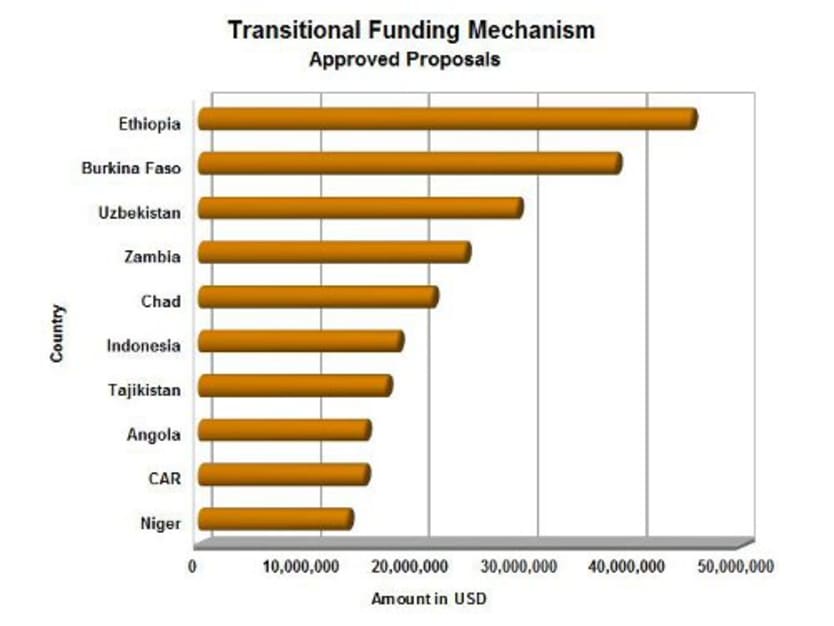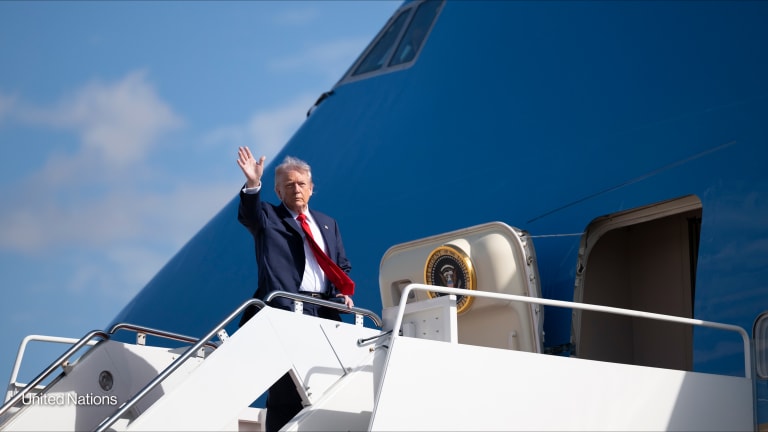
The Global Fund to Fight AIDS, Tuberculosis and Malaria has approved 45 proposals from 37 different countries, awarding grants totaling $419.8 million. The projects were given “on an exceptional basis” through a Transitional Funding Mechanism, launched as a preemptive effort to safeguard gains the organization feared would be lost after the normal proposal cycle was canceled.
The financing institution announced in November 2011 that it was canceling its 11th round of proposals due to funding uncertainty, and established the TFM as a stopgap measure.
In May, updates to the fund’s financial forecasts prompted an announcement that it would turn “the tap back on” by September, with hopes of getting needed resources to countries again by April 2013. The organization announced it would present a new funding model and spend $1.67 billion over the next two years — $1 billion on new projects.
Applicants for the just-awarded transitional funding had to have a current Global Fund grant that was facing significant program disruption between the start of 2012 and March 31, 2014, and had to cap the projects at two years instead of the usual five. They were also instructed to request the minimum amount of financing necessary to continue essential prevention, treatment or care services, and had to demonstrate that no other funding sources were available.
Proposals were submitted to the Technical Review Panel, which met in France June 9-21 to review the requests and ensure they complied with the Eligibility, Counterpart Financing and Prioritization policy. The Global Fund mandates that national governments contribute a share of the financing — or justify why it cannot — in order to get donor support.
Thirty-five of the approved proposals requested general funding, which is restricted according to the recipient country’s income classification and disease burden. The remaining 10 were approved to get financing from the Targeted Funding Pool: Applicants submitting a proposal for this type of grant must guarantee that 100 percent of the funding will be focused on underserved and most at-risk populations, and be the highest impact interventions within a certain health context.
Of the 45 new grants announced, malaria interventions received the most transitional funding, with $204.2 million in 11 countries. Six of the top 10 largest grants finance malaria interventions.
HIV projects received $111.7 million in 16 countries, and $103.8 million went totuberculosis-related efforts in 18 countries.
Ethiopia was approved for the largest grant, which puts more than $451 million toward fighting malaria. Of the top 10 biggest awards, seven went to African nations. Outliers were Uzbekistan and Tajikistan, which received $292 million and $171 million for tuberculosis, and Indonesia, which got $182 million for malaria. Guatemala and Jamaica were the only countries in the Americas to receive awards.
Eleven proposals totaling $91.2 million, eight of which focused on HIV, were sent back for revisions and will be resubmitted later. All grants could be subject to reductions upon further review: The Global Fund’s board made it clear that the amounts it awarded represent upper-limit ceilings.
Read more development aid news online, and subscribe to The Development Newswire to receive top international development headlines from the world’s leading donors, news sources and opinion leaders — emailed to you FREE every business day.
Search for articles
Most Read
- 1
- 2
- 3
- 4
- 5








